-
 bitcoin
bitcoin $87959.907984 USD
1.34% -
 ethereum
ethereum $2920.497338 USD
3.04% -
 tether
tether $0.999775 USD
0.00% -
 xrp
xrp $2.237324 USD
8.12% -
 bnb
bnb $860.243768 USD
0.90% -
 solana
solana $138.089498 USD
5.43% -
 usd-coin
usd-coin $0.999807 USD
0.01% -
 tron
tron $0.272801 USD
-1.53% -
 dogecoin
dogecoin $0.150904 USD
2.96% -
 cardano
cardano $0.421635 USD
1.97% -
 hyperliquid
hyperliquid $32.152445 USD
2.23% -
 bitcoin-cash
bitcoin-cash $533.301069 USD
-1.94% -
 chainlink
chainlink $12.953417 USD
2.68% -
 unus-sed-leo
unus-sed-leo $9.535951 USD
0.73% -
 zcash
zcash $521.483386 USD
-2.87%
How to choose the right mining pool?
When selecting a mining pool, prioritize those with a strong reputation, high hash rate, and supportive community to maximize profitability and minimize risks.
Feb 23, 2025 at 08:07 am
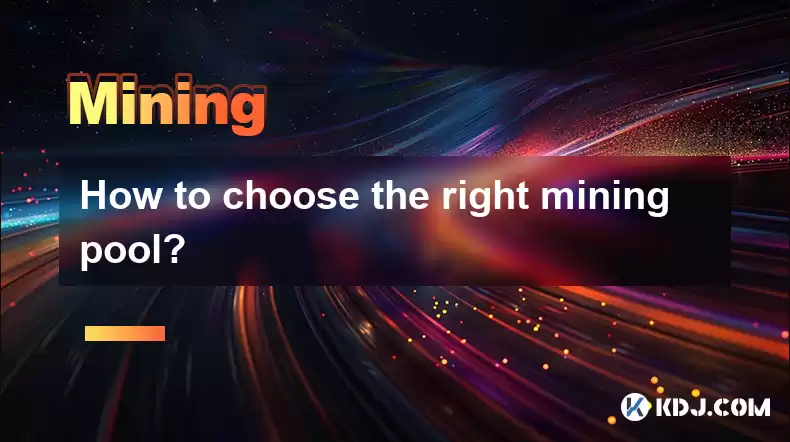
Key Points
- Determine Your Mining Goals
- Research Pool Reputation and Reliability
- Consider Pool Fees and Payout Structure
- Evaluate Pool Hash Rate and Block Frequency
- Assess Pool Liquidity and Network Stability
- Compare Pool Mining Software and Hardware
- Consider Pool Community Support and Transparency
Choosing the Right Mining Pool
1. Determine Your Mining Goals
Define your objectives for mining, such as profitability, long-term investment, or supporting specific projects. Different pools may cater to different mining goals.
2. Research Pool Reputation and Reliability
Thoroughly research the pool's reputation, user feedback, operating history, and industry standing. Look for pools with a proven track record, strong financial backing, and transparent operations.
3. Consider Pool Fees and Payout Structure
Compare the fees charged by different pools, including setup costs, transaction fees, maintenance charges, and performance fees. Understand the pool's payout structure, such as PPLNS, PPS, or PPS+, and choose one that aligns with your preferences and risk tolerance.
4. Evaluate Pool Hash Rate and Block Frequency
Assess the pool's total hash rate, which indicates its overall mining power and the probability of finding blocks. Consider pools with high hash rates and frequent block discovery, as this can increase your earning potential.
5. Assess Pool Liquidity and Network Stability
Ensure the pool has sufficient liquidity to process payouts promptly and maintain network stability. Investigate the pool's infrastructure, server uptime, and recovery plans in case of technical issues.
6. Compare Pool Mining Software and Hardware
Review the mining software and hardware compatibility provided by each pool. Consider factors such as user-friendliness, efficiency, and availability of updates. Ensure the pool supports your preferred mining equipment and software.
7. Consider Pool Community Support and Transparency
Join the pool's online community to engage with other miners, ask questions, and receive support. Assess the pool's level of transparency in terms of communication, financial reporting, and decision-making processes.
FAQs
Q: What are the top mining pools?- Binance Pool
- Poolin
- AntPool
- F2Pool
- Slush Pool
- Hiveon Pool
- GMiner
- ViaBTC Pool
- PPLNS (Pay Per Last N Shares): Miners receive rewards proportionate to their contributed hash rate over a specific period, regardless of whether the pool finds blocks.
- PPS (Pay Per Share): Miners receive rewards for each accepted share, regardless of whether the pool finds blocks.
A higher hash rate increases the probability of finding blocks and earning rewards. The higher the pool's hash rate, the more likely it is to find blocks and distribute rewards to its miners.
Q: What are the common mining software and hardware used?- Mining software: CGminer, Claymore Dual Miner, Phoenix Miner
- Mining hardware: ASIC miners (Antminer, AvalonMiner), GPUs (NVIDIA, AMD)
- Research the pool thoroughly before joining.
- Avoid pools that promise unrealistic returns.
- Use reputable mining software and hardware.
- Be cautious of phishing emails or websites claiming to be from mining pools.
Disclaimer:info@kdj.com
The information provided is not trading advice. kdj.com does not assume any responsibility for any investments made based on the information provided in this article. Cryptocurrencies are highly volatile and it is highly recommended that you invest with caution after thorough research!
If you believe that the content used on this website infringes your copyright, please contact us immediately (info@kdj.com) and we will delete it promptly.
- Vitalik Buterin Rethinks Ethereum's L2 Chains: A New Era for Scalability and Privacy?
- 2026-02-05 22:20:01
- Espresso's Tokenomics Unveiled, Coinbase Roadmap Sparks Interest, and a Look at Modern Tokenomics
- 2026-02-05 22:15:01
- UBS Embraces Crypto and Bitcoin: A Strategic Pivot Towards Tokenization
- 2026-02-05 22:25:01
- Bitcoin Crash Triggers Altcoin Rotation: Navigating Investment Amidst Crypto Volatility
- 2026-02-05 22:20:01
- Crypto Crossroads: Big Bets, Bitter Losses, and Evolving Bitcoin Strategies
- 2026-02-05 22:15:01
- Digital Assets Go Big: London Forum Hails Stablecoin Surge and Institutional Onslaught
- 2026-02-05 22:10:02
Related knowledge
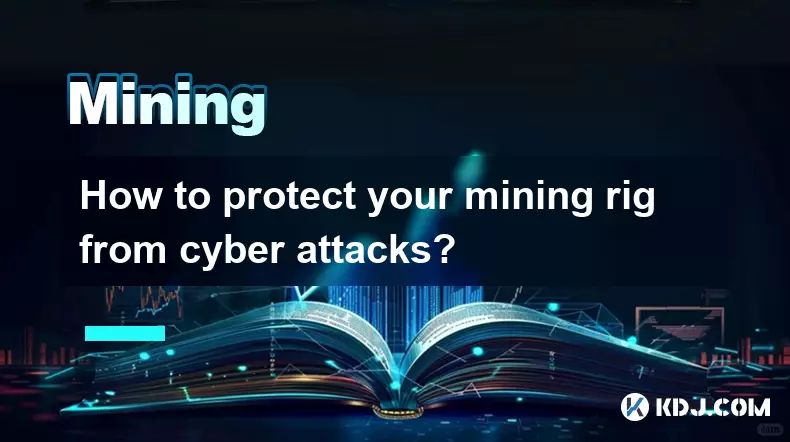
How to protect your mining rig from cyber attacks?
Feb 05,2026 at 09:40pm
Secure Firmware Updates1. Always verify the digital signature of firmware before installation to ensure authenticity and integrity. 2. Disable automat...
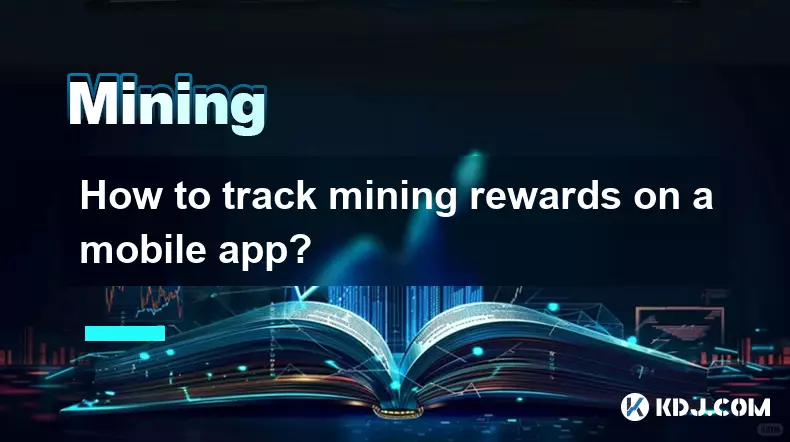
How to track mining rewards on a mobile app?
Feb 05,2026 at 09:19pm
Understanding Mining Reward Tracking Interfaces1. Mobile applications designed for cryptocurrency mining often integrate real-time dashboards that dis...
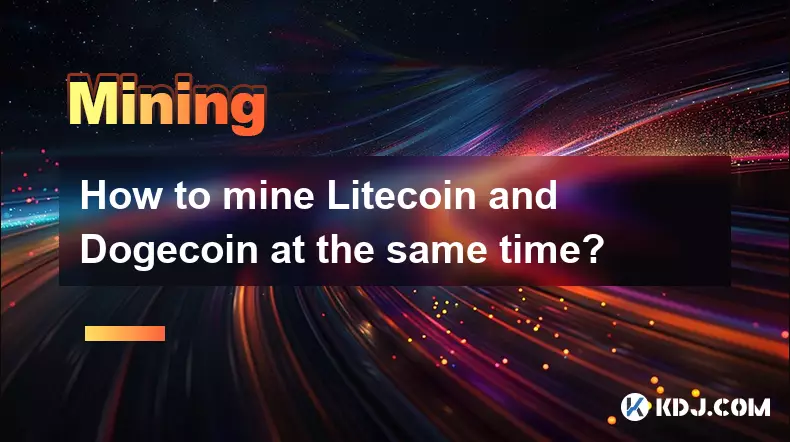
How to mine Litecoin and Dogecoin at the same time?
Feb 05,2026 at 09:59pm
Understanding Dual Mining Concepts1. Dual mining refers to the simultaneous extraction of two cryptocurrencies using a single hardware setup and compa...
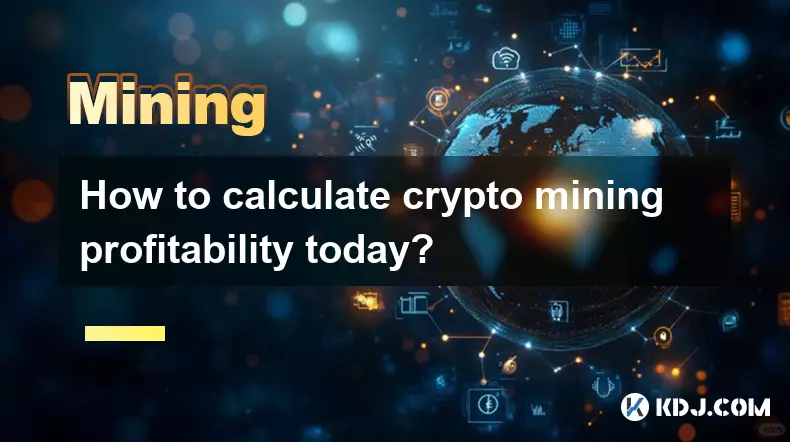
How to calculate crypto mining profitability today?
Feb 05,2026 at 11:19pm
Understanding Hash Rate and Network Difficulty1. Hash rate measures how many computational operations a mining device can perform per second, typicall...
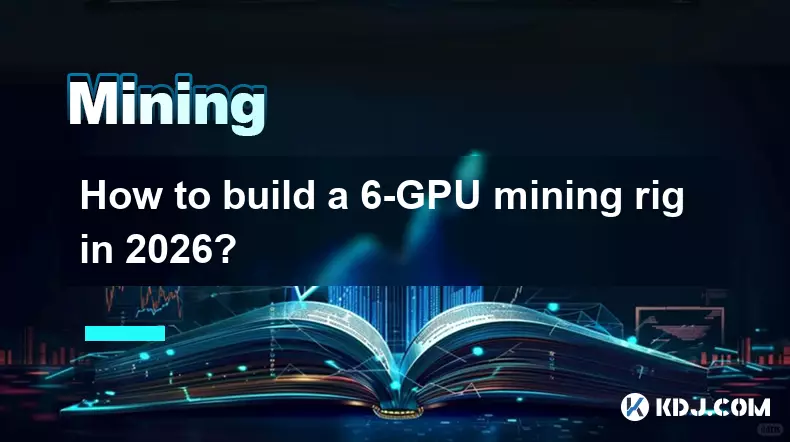
How to build a 6-GPU mining rig in 2026?
Feb 05,2026 at 06:19pm
Power Supply Requirements1. A 6-GPU mining rig demands a robust and stable power delivery system. Units with at least 1600W capacity and 80 PLUS Titan...

How to Spot a Cloud Mining Scam? (Red Flags to Watch For)
Feb 02,2026 at 08:20am
Unrealistic Return Promises1. Platforms advertising guaranteed daily returns above 1–2% without disclosing underlying hardware, electricity costs, or ...

How to protect your mining rig from cyber attacks?
Feb 05,2026 at 09:40pm
Secure Firmware Updates1. Always verify the digital signature of firmware before installation to ensure authenticity and integrity. 2. Disable automat...

How to track mining rewards on a mobile app?
Feb 05,2026 at 09:19pm
Understanding Mining Reward Tracking Interfaces1. Mobile applications designed for cryptocurrency mining often integrate real-time dashboards that dis...

How to mine Litecoin and Dogecoin at the same time?
Feb 05,2026 at 09:59pm
Understanding Dual Mining Concepts1. Dual mining refers to the simultaneous extraction of two cryptocurrencies using a single hardware setup and compa...

How to calculate crypto mining profitability today?
Feb 05,2026 at 11:19pm
Understanding Hash Rate and Network Difficulty1. Hash rate measures how many computational operations a mining device can perform per second, typicall...

How to build a 6-GPU mining rig in 2026?
Feb 05,2026 at 06:19pm
Power Supply Requirements1. A 6-GPU mining rig demands a robust and stable power delivery system. Units with at least 1600W capacity and 80 PLUS Titan...

How to Spot a Cloud Mining Scam? (Red Flags to Watch For)
Feb 02,2026 at 08:20am
Unrealistic Return Promises1. Platforms advertising guaranteed daily returns above 1–2% without disclosing underlying hardware, electricity costs, or ...
See all articles























![KING vs PAINIFY😳 (1v1 ZONEWARS) [FORTNITE TOKEN/WAGER] KING vs PAINIFY😳 (1v1 ZONEWARS) [FORTNITE TOKEN/WAGER]](/uploads/2026/02/05/cryptocurrencies-news/videos/origin_6984035326d58_image_500_375.webp)
![2/4 [U.S. Hot Search] CIA: Xi Jinping is a paranoid | Xi Jinping’s two phone calls | Shandong’s “Internet-addicted” teenagers rebelled against tyranny | A direct attack on the Chengdu hacker national team | Why GDP must grow by 5% | The bridge under construction by the China Railway 12th Bureau collapsed | Thousands of billions of dollars spent abroad and thirty billion domestic subsidies | 2/4 [U.S. Hot Search] CIA: Xi Jinping is a paranoid | Xi Jinping’s two phone calls | Shandong’s “Internet-addicted” teenagers rebelled against tyranny | A direct attack on the Chengdu hacker national team | Why GDP must grow by 5% | The bridge under construction by the China Railway 12th Bureau collapsed | Thousands of billions of dollars spent abroad and thirty billion domestic subsidies |](/uploads/2026/02/05/cryptocurrencies-news/videos/origin_69840a757417b_image_500_375.webp)

















































